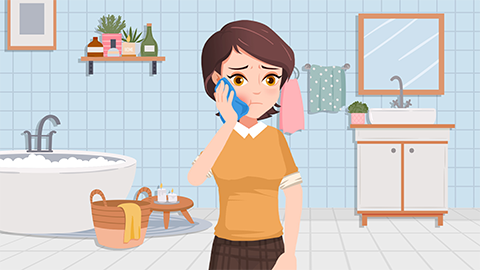What to do about redness and swelling from mosquito bites
Generally, measures such as cold compresses, topical application of calamine lotion, application of mild corticosteroid creams, oral antihistamines, and avoiding scratching can help alleviate redness and swelling caused by mosquito bites. Detailed explanations are as follows:
1. Cold compress: Wrap an ice pack or cold towel in a clean cloth and apply it to the swollen area for 10-15 minutes each time. The low temperature helps constrict blood vessels, reduce local inflammatory exudation and swelling, and relieve itching.

2. Topical calamine lotion: This has astringent and antipruritic effects. Applying it to the affected area can reduce skin irritation and relieve itching. It is suitable for mild swelling without skin damage and can be used multiple times daily.
3. Application of mild corticosteroid creams: Such as desonide cream or hydrocortisone butyrate cream. These can suppress local inflammatory reactions and quickly reduce swelling and itching. Continuous use should not exceed one week to avoid side effects like skin atrophy from long-term application.
4. Oral antihistamines: If the swelling covers a large area and itching is severe, one may take loratadine tablets, cetirizine hydrochloride tablets, or similar medications under a doctor's guidance. These drugs relieve allergic reactions and alleviate systemic or localized discomfort by blocking histamine receptors.
5. Avoid scratching: Scratching may cause skin damage and increase infection risk. If itching is unbearable, gently pat the affected area or use the aforementioned methods to relieve itching. Keep the skin clean and dry.
Note that if signs of infection such as obvious pus discharge, increased pain, fever, or continuously expanding redness and swelling occur at the bite site, seek medical attention promptly. Special populations such as infants, young children, and pregnant women should consult a doctor before using any medication to avoid self-medication.








